THE BIG PICTURE
300 is deeply harmful with xenophobic and Islamophobic themes that misrepresent history.
The film excuses stereotypes and promotes harmful fantasies through its portrayal of Spartans and Persians.
Zack Snyder’s potential return to the 300 franchise may be a step backward.

It’s safe to say that there’s not another filmmaker working today whose work has been quite as polarizing as Zack Snyder’s. While he’s been praised by some as a bold auteur who challenges traditional notions of storytelling, his overused physical gimmicks and bland writing in projects like Rebel Moon and Justice League have been sharply critiqued by others.
The debate over Snyder’s style has been bolstered any time he’s had the opportunity to work within established properties. While skeptics were actually impressed by his reinvention of George Romero’s classic zombie film Dawn of the Dead, responses to his series of dour, downbeat films in the DCEU were less enthusiastic. That being said, none of Snyder’s projects have been as controversial as his 2007 adaptation of the Frank Miller graphic novel 300.
Despite its faults as a work of historical fiction, 300 had an immediate effect on Snyder’s career. The praise for his unique visual style, matched with the film’s surprise box office success, allowed him to work on more ambitious projects like Watchmen and Sucker Punch. Although 300 may have been the film that Snyder owes his career to, it’s not exactly a property that’s worth revisiting; the disappointment of the prequel film 300: Rise of an Empire seemed to shatter any of Warner Bros.’ dreams of kicking off a franchise. Nonetheless, the announcement that Snyder is in talks to direct and produce a 300 prequel series for Max is more than a little concerning. 300 is a deeply harmful film that doesn’t need a continuation.

300
R
Action
Drama
King Leonidas of Sparta leads 300 of his best warriors to defend Greece against the massive invading Persian army led by King Xerxes. Outnumbered and facing insurmountable odds, the Spartans make their stand at the narrow pass of Thermopylae, using their superior tactics and fighting skills to hold off the Persians.
Release DateMarch 9, 2007
DirectorZack Snyder
CastGerard Butler , Lena Headey , David Wenham , Dominic West
Runtime117 minutes
Main GenreAction
WritersZack Snyder , Kurt Johnstad , Michael B. Gordon
‘300’ Has Deeply Xenophobic and Islamophobic Themes
Set in the events leading up to the Battle of Thermopylae, 300 centers on the rise of the Spartan Army and their charismatic leader, King Leonidas I (Gerard Butler). Leonidas certainly did not earn his position of leadership through a family bloodline; he fought for years within Sparta’s brutal training program to prove that he was the most brutal child of his generation.
300 doesn’t have a shred of historical accuracy, as it completely misrepresents the dynamic between the Spartan Army and their Greek allies as they stood up to defend their city-states against the Persian dictator Xerxes I (Rodrigo Santoro).
Nonetheless, it does reframe the most important details of the battle for the sake of dramatic tension; Sparta’s army of only 300 men is crushed in defeat by the more overwhelming numbers of the Persian Empire. While a decisive victory, the Battle of Thermopylae was critical to the larger Greco-Persian War that resulted in Persia’s withdrawal from Greece.
300’s lack of historical accuracy isn’t necessarily its major problem. There are plenty of beloved historical biopics that fictionalize aspects of the true story for the sake of making a more entertaining film. However, 300 is coded with deeply xenophobic stereotypes when it comes to the Persian characters.
Even though Islam was not a developed religion at the time of 300’s historical events, several visual and cultural similarities can be drawn between the Persian characters and historical Muslim societies. The race-baiting nature of the conflict evoked controversy during 300’s release, with Iran officially denouncing the film and banning it from the country.
‘300’ Excuses Harmful Stereotypes
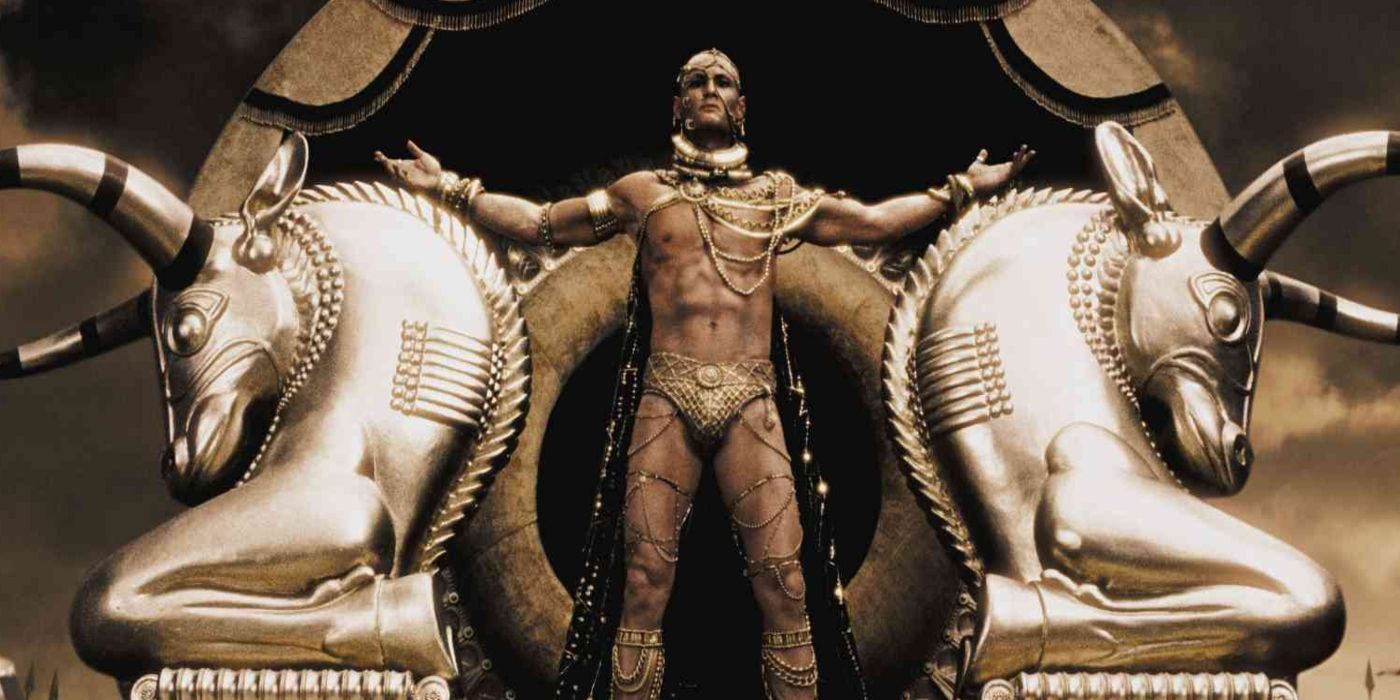
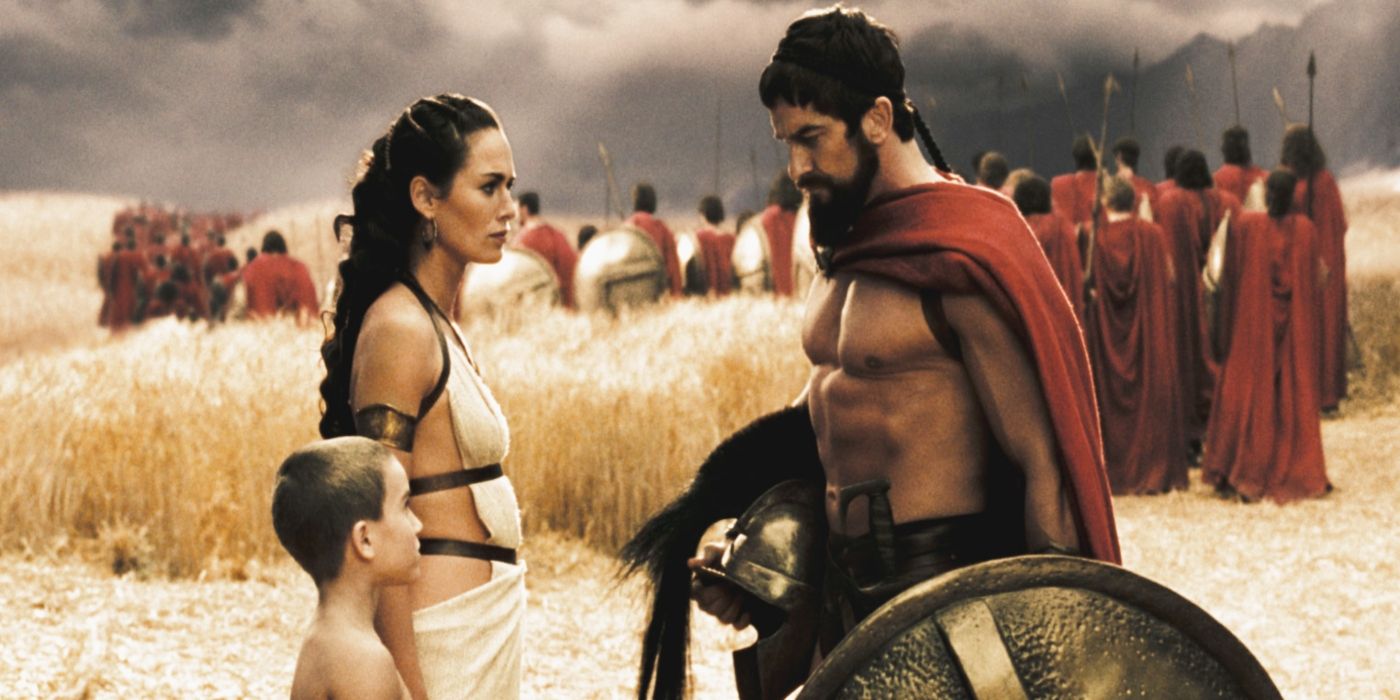

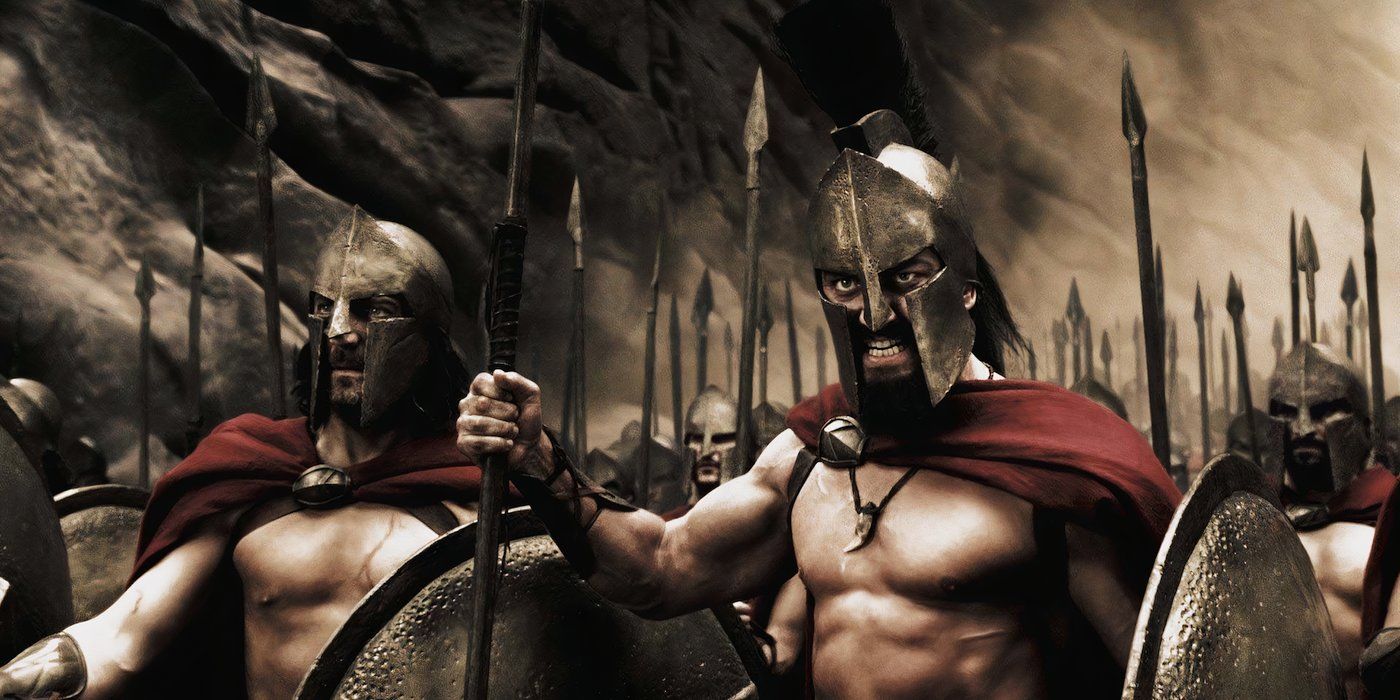
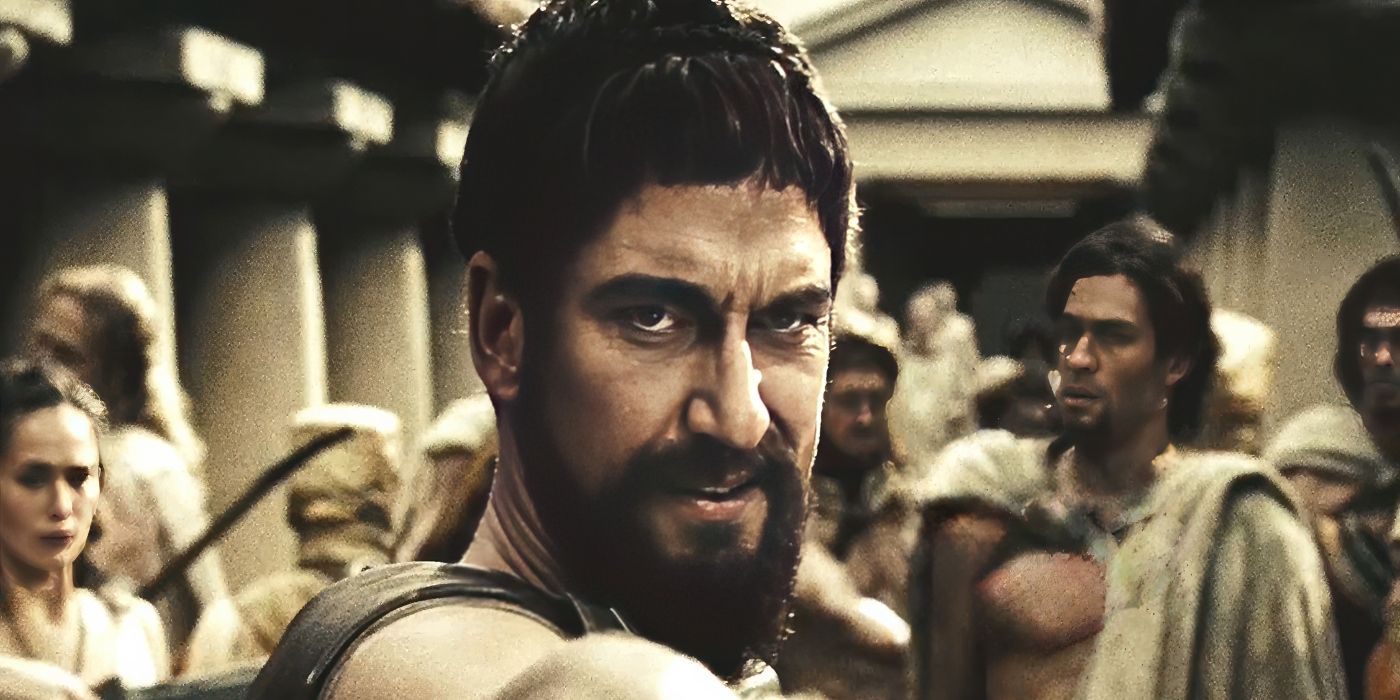
Perhaps even more disturbing than the film’s denial of historical realities are the parallels that it draws to the modern day. The Spartan Army, framed as heroic in both Miller and Snyder’s eyes, is a broadly fascist society that solves any and all issues through violence.
It’s not even violence that is framed through the perspective of a revenge narrative, as the Spartans seem to have the Persians for their very existence, with the film portraying them as sexually flamboyant and culturally liberal. The message of 300 is simple; the Spartan forces’ brutality is completely justified if it is to defend their way of life from “foreign invaders.”
300 also has many offensive characterizations of minorities that have made it age very poorly. While Lena Headey would go on to play strong female characters in projects like Game of Thrones and Dredd, her 300 character Queen Gorgo is a shallowly written, subservient wife who does nothing but appease her husband, Leonidas.
The film also has strong ableist connotations, as Leonoidas at one point publicly shames a “hunchback” Spartan, claiming that he has no place in his army. In a film that is all about the power of a community rising up against an oppressor, it’s very clear that 300 is a fantasy for only a certain viewer, and not the type of war movie that is made to empower all audience members, regardless of race, gender, or creed.
Zack Snyder Returning to the 300 Franchise Seems Like a Step Backward
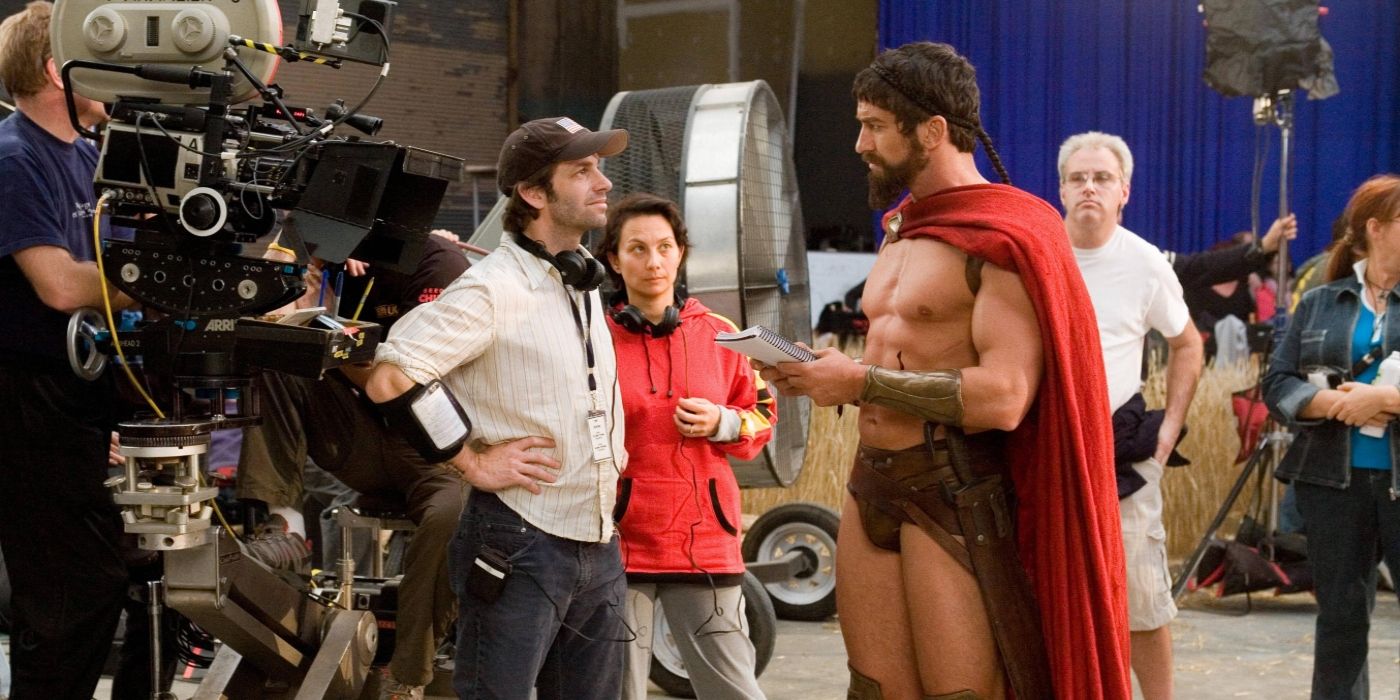
300 may not have been beloved among critics, but it certainly inspired a number of historical epics that attempted to capture Snyder’s unique blend of slow motion and haphazard violence. Unfortunately, this ultimately became a harmful trend that led to disappointments like Hercules and Pompeii among others, and effectively spelled the end of the genre’s renaissance.
When compared to the practical action sequences of modern classics like Mad Max: Fury Road and the John Wick franchise, 300’s over-the-top visuals now seem completely out of touch. Ironically, Snyder is one of the few filmmakers who still utilizes this style without any sense of irony.
The issue with a 300 prequel ultimately lies in Snyder himself. He can’t be blamed for adapting Miller’s graphic novel faithfully, but Snyder has continuously demonstrated a willingness to adhere to his own vision, regardless of any valid critique.
Snyder continued to push for the release of his version of Justice League, despite legitimate criticisms about his characterization of Batman. While the Rebel Moon franchise earned disastrous reviews, that doesn’t seem to have impacted Snyder’s future opportunities. His potential return to the world of 300 does not suggest that Snyder will be changing anything about his controversial style.
300 is available to watch on Hulu in the U.S.
News
Reacher Season 3’s Narrowed Release Window Reportedly Revealed
SUMMARY Reacher season 3 could be released in early 2025. Sticking to a yearly release schedule could help Reacher grow its audience. This is especially true since Reacher has consistently high viewership similar to broadcast TV procedural hits. The release window for Reacher season 3 has…
Reacher season 3 premiere date: A tiny new tease
While there may not be a formal Reacher season 3 premiere date yet at Prime Video, there is something more that we can share! Previously, star Alan Ritchson had shared on Instagram that the action drama would not be back until 2025,…
Nicolas Cage Is ‘Terrified’ of AI and Got Digitally Scanned for Spider-Man Noir: ‘I Don’t Want You to Do Anything’ With My Face and Body ‘When I’m Dead’
Nicolas Cage said in an interview for The New Yorker that he is terrified of AI and is hoping recent body scans he had to do for two upcoming projects aren’t used as reference for AI technology to recreate him on screen after…
Reacher season 3 premiere date: The worst-case scenario?
We know that Reacher season 3 is coming at some point to Prime Video. Not only that, but filming is already done! A great deal of the groundwork has already been laid regarding the show’s future, and there is now just a…
Gods Of Egypt’s Casting Controversy Explained
SUMMARY Whitewashing of Egyptian gods with white actors led to a negative impact on Gods of Egypt. Lack of diversity in casting choices resulted in backlash, poor reviews, and financial failure. Movie’s failure at the box office emphasized the importance…
Gerard Butler disses ‘Free Guy’, Ryan Reynolds generously responds
Ryan Reynolds has offered a response to comments from Gerard Butler about his latest feature, ‘Free Guy’, and his other movies. Earlier this month, the ‘300’ star gave an interview to Unilad promoting it, and he included some scathing comments about Ryan Reynolds’ work….
End of content
No more pages to load











